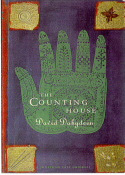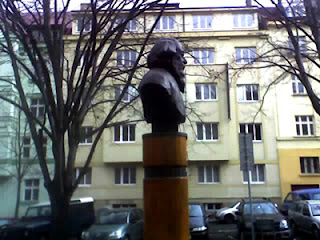 Tongues on Fire, an Asian film festival that showcases women as directors and/or protagonists, celebrated its 9th anniversary in London in March this year. It was an exciting array of films, documentaries, short film competitions as well as panel discussions that included Q & A sessions. The show ended with a special tribute to the Bollywood legend Helen. (In the past years the festival has paid special tribute to Shabana Azmi and Aparna Sen.)
Tongues on Fire, an Asian film festival that showcases women as directors and/or protagonists, celebrated its 9th anniversary in London in March this year. It was an exciting array of films, documentaries, short film competitions as well as panel discussions that included Q & A sessions. The show ended with a special tribute to the Bollywood legend Helen. (In the past years the festival has paid special tribute to Shabana Azmi and Aparna Sen.)
In naming the festival, Chowdhry and Nath have chosen an interesting if neutral name for their cultural production. They felt that some people would not even pick up the brochure if they named it as specifically female and Asian. Like the hosts of Voices of Bengal (an exhibition of Bengali culture and heritage hosted by British Museum in 2006), they wanted to woo the mainstream audience. Asian women were there at all the venues but all such exhibitions eventually need to co-opt the dominant culture. Speaking from the margins is fine, but the margins need to converge on to the main text and the main text needs to be revised and moderated by the nuances of the marginalia. Only then can new and dynamic dialogues be set up and we can even begin to speak of a genuine move towards globalization. Chowdhry and Nath, intend not only to resist the stereotype of their gender and race as down-trodden, subservient and devoid of personality but also to offer an alternative perspective.
If the festival directors Pushpinder Chowdhry and Harvinder Nath were aiming at bringing together an eclectic body of work, they certainly succeeded. The month long season opened with screening of The Namesake directed by Mira Nair; the festival also marked the premiere of Oscar nominated Water directed by Deepa Mehta. The Namesake drew fairly large audiences particularly young, discerning British Asians who I hope, could identify more with Gogol in The Namesake rather than Jas in Namastey London (a typical Bollywood masala film also running in theatres at the same time). Jhumpa Lahiri’s story, sensitively re-told by Nair, touched a chord in the older group of immigrants who left their homeland in the sixties and seventies and had to re-make themselves in strange lands.
There were previews of Provoked, directed by Jag Mundhra, starring Aishwarya Rai (oops Bachchan), Naveen Andrews, Miranda Richardson, and of another film with the intriguing tag line, ‘Everyone has something to hide.’ Hiding Divya is a powerful film about three generations of women, mother, daughter and granddaughter woven together by love, rebellion, mistrust and mental illness. Another film to watch out for is Pratibha Parmar’s Nina’s Heavenly Delights. A delightful comedy about a mixed race marriage and a lesbian relationship, this film is shot in U.K. Using elements from her own life, Parmar delves into issues of sexuality, friendship, food and tops it up with a rich sprinkling of Scottish humour.
No More Tears Sister & Of Such Times (The Modern Indian Woman) were also screened at the festival. The former is a must-see, set in Sri Lanka and based on the life of well known human rights activist, Dr. Rajani Thiranagama. Dor, directed by Nagesh Kukunoor was a pleasant surprise. The star cast of Gul Panang and Ayesha Takia seemed to indicate Bollywood flavoured pubescent love stories. But the ties of friendship between two women that develops at a critical juncture in their lives and across class lines signals exciting possibilities in women’s cinema coming out of India. Technical aspects of the film including photograph were brilliant.
Tongues on Fire, offers an opportunity, not only to watch the poignant films of today but also to meet the stars. For upcoming students of cinema, it offers a platform to demonstrate their potential. Together the screenings and the events convey a sense of creativity, intellectual depths, technical maturity and production finesse. Overall the festival exudes vibrance and a taste of things to come – we are here, Tongues on Fire seems to say, we the Asians and British-Asians and most importantly, we the women who have things to say and know how to say them.
Read more!













